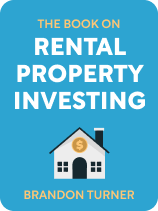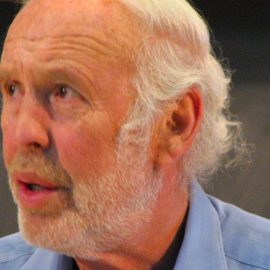

This article is an excerpt from the Shortform book guide to "The Book on Rental Property Investing" by Brandon Turner. Shortform has the world's best summaries and analyses of books you should be reading.
Like this article? Sign up for a free trial here.
How does real estate investing work? What are the basic things you should know about investing in real estate?
In The Book on Rental Property Investing, Brandon Turner addresses the basic principles you’ll need to know before entering the field of real estate. Particularly, you’ll need to know more about the financial approaches, benefits, and risks involved.
Below we’ll break down what new investors should know about the business.
How Rental Properties Make Money
How does real estate investing work? Turner recognizes that most people buy rental properties to make money, and he specifies four ways they generate income:
1) Cash flow: This is the money coming in after you pay expenses. It’s usually regular rent from tenants. Turner argues that cash flow is the most vital income source—it creates an immediate return on your investment and funds future growth. Therefore, he advises selecting properties that produce cash flow immediately.
2) Tax benefits: Turner notes that governments see rental property owners as economically beneficial because they provide housing for people who can’t afford to own property. Therefore, they often give owners tax benefits.
3) Appreciation: A property’s worth increases over time. Turner explains that real estate has two main forms of appreciation:
- Natural appreciation: caused by economic factors like inflation, supply, demand, and scarcity
- Forced appreciation: usually caused by property improvement work, such as providing new hardware, a garage door, or even attractive landscape features like ivy or hedges)
4) “Loan paydown”: Turner explains that receiving regular rent from tenants pays down your mortgage, expediting full ownership of the property. Usually, lenders apply a device called amortization to your loan payment: Initially, more of the payment is applied to the interest on the loan. However, over time, the weight of each payment shifts to paying off the principal (the initial quantity of the loan).
Strategies for Getting Started in the Rental Property Industry
With your first property, you may wonder how much money you need to start investing. Turner notes that many investors opt to use leverage at this initial stage: the ability to borrow money—often through a mortgage—to purchase the property. This allows you to put down a much smaller quantity of your own resources into your first property. For example, with leverage, a $200,000 home may only require an upfront investment of $40,000.
Taking on debt entails risk, Turner warns. The greater the loan, the greater the risk. The amount you owe is larger due to both a higher principal and to more interest accrued over time. The property has to make enough money for you to pay the loan down without using your own resources: Therefore, be sure that a property’s cash flow exceeds both loan payments and expenses.
| Try a Real Estate Investment Trust (REIT) to Get Started If purchasing a property is beyond your financial reach, or if you’d struggle to get a mortgage, consider investing in a Real Estate Investment Trust (REIT). This is typically a company that manages rental properties and invites investment in their enterprise. The company distributes profits from those properties’ rents to their investors, similarly to how stock dividends function. Initial REIT buy-in can cost as little as $1,000. You can also choose different investment features to try to maximize your returns, such as specific categories of real estate or profitable geographical regions. Finally, REITs are more liquid investments than most actual properties, meaning you can remove your money quickly if needed. |
Some Potential Pitfalls of Investing in Rental Properties
Turner warns of several friction points when starting out in rental property investment. Becoming successful takes systematic, long-term effort; you won’t get rich overnight. Moreover, it’s easy to get caught up in time-consuming day-to-day maintenance of properties. So, decide on your level of commitment, and consider using property management instead. (We’ll discuss property management in more detail later.)
(Shortform note: While Turner argues that rental property investment generally isn’t a quick route to profit, a potentially speedier option is investing in short-term rentals. These are units you rent for abbreviated periods, often to people on vacation. Rental periods are typically between one and 30 days, and you can adjust your prices to capitalize on prime tourist seasons in that area. Two popular hubs for advertising and booking short-term rentals are AirBnB and Vrbo. Keep in mind that the time commitment of managing these properties may be more extensive than with longer-term rentals if you’re not using property management, as the property needs to be cleaned and spruced up after every guest.)
Also, Turner continues, prepare for paperwork—lots of it. You’ll be in charge of tax and insurance forms, processing tenant applications and background checks, tracking rent payments and contractor expenses, and paying fees for municipal services like trash collection, water, and sewage.
(Shortform note: To efficiently handle the burden of paperwork associated with real estate investing, consider separating it into two sections. The first should include all documents and images related to each property you own—all documents associated with its purchase, images of the exterior and interior, records associated with contractor work, and so on. The second section should house information relevant to taxes, such as mortgage interest statements, tax receipts, and closing documents (including proof of insurance, loan application, loan estimate, and the closing disclosure, which specifies the features of the loan itself). Keeping these sections separate in clearly labeled files or folders should ease paperwork navigation and records-keeping.)

———End of Preview———
Like what you just read? Read the rest of the world's best book summary and analysis of Brandon Turner's "The Book on Rental Property Investing" at Shortform.
Here's what you'll find in our full The Book on Rental Property Investing summary:
- An educational guide to locating, buying, and managing real estate property
- The major pitfalls new investors encounter and how to overcome them
- How to hunt down, select, finance, and purchase your first property






